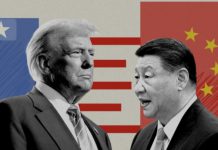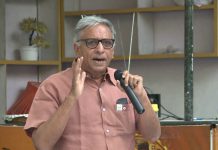Written by S Y Quraishi
The sting operation by two TV channels purportedly showing Karnataka MLAs negotiating cash for votes for a Rajya Sabha election has caused a furore over the phenomenon of horse-trading. This is not a first. Election time has become harvest season for voters electing members to the Vidhan Sabha, Lok Sabha and Rajya Sabha.
We saw MLAs of a party and some independents negotiating big money — Rs 5 to 10 crore — for each vote. Of course, they were not being dishonest; just demanding reimbursement of their own election to the Vidhan Sabha! Their party leaders were heard justifying it — “after all, they have to fight an election.”
Anchors and experts were heard advising the Election Commission on what is to be done. Many called the EC toothless and wanted the elections postponed or even cancelled at once, just on the basis of TV reports. “What more proof do you need?” they asked the EC. They referred to a similar case of Jharkhand in 2012 when elections to two RS seats were countermanded.
It’s important to refer to the Jharkhand case as this is the only precedent we have. On a complaint brought by three senior political leaders about rampant horse-trading among MLAs, the EC countermanded the poll. It may be recalled that Jharkhand had become notorious for rich people from outside the state queuing up to buy RS membership.
It was not an easy case for the EC. The biggest concern was that there is no model code of conduct for the RS election as the nature of the election is different. There are no public meetings, rallies, door-to-door canvassing or media campaigns. The constituency is confined to a small electoral college consisting of MLAs. The voting is open so the party MLAs are subject to party discipline but the independents are hot property.
The legal dilemma before the EC in the Jharkhand case was how to prove that the Rs 215 crore that was caught was meant for the election. We thought we would face judicial reprimand if our stand was taken as hasty and conjectural. We decided to bite the bullet. Our gamble paid off.
The Jharkhand HC not only dismissed the writ petition against the order but hailed it as the most decisive action against corruption in 60 years and imposed a fine of Rs one lakh on one of the petitioners.
In the instant case, no money was caught but there was conversation between the MLAs and a decoy journalist where offers/demands of Rs 5-10 crore were made. Does it legally constitute a commission of offence of bribe or at least an attempt to do so? The intention to commit an offence is not a crime except in the case of dacoity. As expected, the defence being put up by the concerned players is that no money has changed hands.
The rot is deep. Every political party knows it. They also make appropriate noises about it but have no intention to stem the rot. The tone changes when they themselves are at the receiving end. So long as we have this volte face and double speak, there can be no solution. I must, however, recall one notable exception when after the Jharkhand countermand, L.K. Advani wrote a blog showering “kudos to the CEC” despite the fact that his own party was equally hurt by our decision. This is what he wrote. ‘’I hold that today’s decision of the Election Commission based on reasonable credible apprehensions is a landmark decision… moneybags with no political support would think a thousand times before jumping into the fray.” Sadly, they don’t.
What should the EC do? The EC has to ascertain the fullest possible facts. It has asked for a report of the Karnataka chief electoral officer on the recordings of the sting operation. Going through the recording, transcribing it, translating the Kannada bits is taking time. While the reality is clear, the law requires evidence. Expecting the EC to act without a detailed report is not fair. We must remember that the EC’s orders are subject to judicial scrutiny. In any case, there is ample time before polling day. The Jharkhand countermand order was given on the night of the election day, after the polling was over, and counting was withheld.
If the EC concludes that there is prima facie evidence that corruption has vitiated a free and fair election, it has to act. What action is possible? One, order an FIR immediately. Two, postpone the election till the inquiry is sufficiently complete. Three, countermand the election till a conducive atmosphere for a free and fair election is achieved and notify a fresh poll. An unintended consequence of the countermanding will be that the three other seats where the numbers are clear (and the candidates are stalwarts) will also be put on hold. Can this be turned into an opportunity? It may force the two biggest national parties to debate the evil of money power and consider the electoral reforms they have been avoiding.
What are the desirable reforms? Foremost is the amendment of Section 58 of the Representation of the People Act to make abuse of money a ground to countermand the poll, as the EC has demanded. In the Jharkhand case, we had resorted to the plenary power granted by Article 324 of the Constitution. This is a weapon the EC uses sparingly. It’s important that an enabling legal provision is made.
Two, political parties must discuss the overall problem of money power vitiating the election process and carry out necessary electoral reforms. Three, there must be a ceiling on the expenditure by political parties for candidates. Political parties spend crores. And when they spend crores, they need to collect crores.
Four, state funding of political parties, not elections, must be considered while banning private fund collection totally. Based on the number of votes obtained, Rs 100 per vote can be given. Five, domicile condition for candidates that was done away with in 2003 must be restored to stop wealthy candidates from outside the state from jumping into the fray. Six, to prevent cross-voting by horse-trading, the anti-defection law should be amended to declare the violation of the party whip as defection.
It’s a defining moment for India’s democracy. Let’s seize the opportunity. When people lose faith in democracy, the consequences are disastrous. We have enough examples in the neighbourhood.
The writer is former chief election commissioner of India
(With Thanks Indian Express)
















